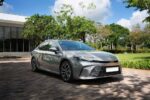Taishang, in southern China, is just over an hour’s drive from the nearest city. Here, elderly men still gather at the community house every afternoon. Fat chickens wander the streets.
However, in front of one house is a black Tesla Model Y. Sun Hesheng, a 56-year-old businessman specializing in exporting plastic hair clips, recently bought it for his son, Sun Yajun. While Sun Hesheng is satisfied with the Tesla Model Y because of its lower operating costs compared to gasoline cars, Sun Yajun is more interested in the stylish design and high-tech features. “Tesla is very stylish and futuristic,” said the 20-year-old.
Sun and his Tesla are part of the electric car boom in China. According to data from BloombergNEF, China has sold over 18 million electric vehicles since the beginning of 2017, accounting for nearly half of the global total and four times as many as the United States. By 2026, researchers predict that over 50% of new passenger car sales in China will be electric, compared to over 1/4 in the United States.
This surge in domestic purchases has helped Chinese companies establish dominance in the global electric vehicle supply chain. However, the transition from internal combustion engines to electric motors in China has consequences far beyond the scope of the auto industry.
“Every car you start driving with electricity, you won’t drive gasoline cars anymore. If China’s electric vehicle growth continues in the next decade, it will have a significant impact on global oil consumption,” said Robert Brecha, a sustainability professor at the University of Dayton in Ohio.
China is the world’s largest crude oil importer. The country’s massive two-decade consumption growth has driven oil prices to $100 per barrel and has created many billionaires in Texas and the Middle East.
The transportation sector accounts for nearly half of China’s total oil consumption, so as the number of electric vehicles increases, the expected demand for fuel will decrease. Analysts and industry executives are predicting that China will reach its peak oil consumption soon, possibly this year.
However, some believe that predictions of China’s peak oil demand are too early. In 2017, China National Petroleum Corporation projected that final consumption would reach 690 million tons per year. The following year, the company increased its forecast to 700 million tons, then to 740 million tons before reaching 780 million tons – the current projection.
China’s peak consumption forecast is based on the assumption that the adoption rate of electric vehicles will continue to rise. However, this is not guaranteed. However, for electric vehicles to truly become popular, they cannot be limited to city cars but must have the ability to operate in larger areas of the country. In addition, electric vehicles need to serve not only economically disadvantaged customers but also become an option for every social class.
Electric vehicles in China come in various forms, from the luxurious Yangwang SUV, which can travel up to 1,000 km on a full charge, to the cheap Wuling Hongguang Mini, which can travel about 120 km on a full charge. Bloomberg reporters chose the BYD Qin, an entry-level electric sedan, for a test drive.
The first gas station where a Bloomberg reporter chose to charge the car in Shanghai is a sign that even traditional fuel companies are betting on the future of the electric car explosion. Operated by Sinopec, China’s largest oil refinery, it not only has gasoline and diesel pumps but also about 20 electric vehicle charging stations.
A charging station employee named Zhang said that in the years since the charging station opened, the cost of charging electric vehicles has increased significantly. Electric vehicles charge 24 hours a day, and at lunchtime, there are many drivers smoking while waiting for the battery to charge, to the point where Sinopec had to install a concrete wall between the electric charging area and the gasoline pump area for safety reasons.
“No one will drive gasoline cars in the future. It will be a world for electric cars,” Zhang said.
After driving around China, Bloomberg reporters noticed that gas stations with electric vehicle charging stations like those at Sinopec are no longer the exception. China currently has about 2.5 million public charging stations, the most in the world.
Li Yong, who is currently driving a Changan Auto electric MPV to transport meat from his goose farm in Anhui Province to customers hundreds of kilometers away, said that switching from gasoline to electric vehicles has helped him save about 80% on fuel costs.
“I will never go back to using gasoline cars. Electric cars are very convenient and cost-effective,” said Li at a charging station in Hefei.
Back in the Taishang area, more people may soon switch to electric vehicles. A group of primary school students gather around the parked Tesla. A boy exclaims in surprise as he presses the hidden door handle, causing it to pop out. Sun Hesheng puts a large cloth bag full of tiny hair clips in the back of his small truck. He drives this truck about 10,000 km a year to transport the hair clips, costing about 8,000 yuan per year. His son told him that the cost of an electric vehicle could be as low as 1,000 yuan.
“If the electric vehicle experience is really great for my son, I will consider replacing my truck with another electric vehicle,” said Sun.
Trang Nguyen (Forum.autodaily.vn)
Source: Bloomberg

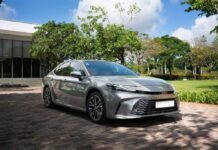


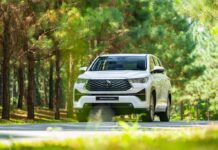



















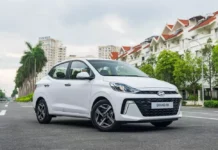
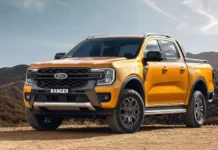
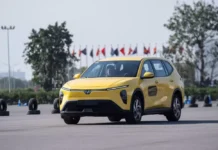
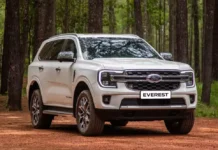



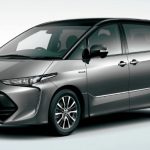
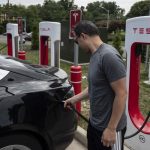
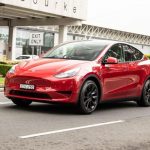
![[Quick Review] Hyundai IONIQ 5 – A Vehicle from the Future](https://vnauto.net/wp-content/uploads/2023/10/xehay-hyundaiioniq5-18052022-2-150x150.jpg)
